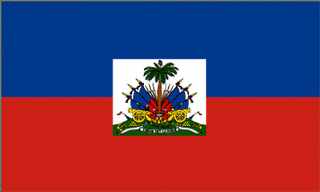Commissioner Georgieva makes a plea for cholera victims in Haiti
 Commissioner Georgieva said “The anti–cholera efforts undertaken before of the post–electoral riots have reduced the daily rate of cholera deaths from 50 on 23th of November to 22 on 4th of December. We are working to continue with this positive trend, but to be successful, humanitarian workers and victims of cholera need peace. Insecurity is killing more people by preventing treatment than by violence in the streets. If turmoil persists, the cholera epidemic can go out of control. It is essential to allow patients to be treated, clean water to be provided and good sanitation to be ensured. If we fail to do so, the consequences could be devastating.”
Commissioner Georgieva said “The anti–cholera efforts undertaken before of the post–electoral riots have reduced the daily rate of cholera deaths from 50 on 23th of November to 22 on 4th of December. We are working to continue with this positive trend, but to be successful, humanitarian workers and victims of cholera need peace. Insecurity is killing more people by preventing treatment than by violence in the streets. If turmoil persists, the cholera epidemic can go out of control. It is essential to allow patients to be treated, clean water to be provided and good sanitation to be ensured. If we fail to do so, the consequences could be devastating.”
The present riots in Haiti are having serious consequences on the humanitarian aid operations in Haiti. Many people affected by cholera no longer have access to life–saving treatment, because widespread violence prevents cholera treatment centres from operating and medical personnel from moving around freely. The violence is also preventing the delivery of clean water and other basic services, both to cholera affected communities and to the numerous tented camps which still house more than one million people affected by the 12 January earthquake.
Commissioner Georgieva thanked the Member States for their support, and added that in addition to €12 million in humanitarian funding already disbursed, another aid package of €10 million was under preparation. Commissioner Georgieva stressed that unimpeded access and respect for basic humanitarian principles was needed before more funds being made available.
The epidemic, which has been ravaging the country in waves for nearly two months, has already affected more than 93,000 people and killed over 2,100. These figures are likely to rise dramatically the longer the current unrest goes on. The situation is particularly worrying in areas where the cholera attack and lethality rates are currently very high.
Background
In 2010, the European Commission, through its Humanitarian Aid and Civil Protection department (DG ECHO), has allocated a total of 120 million euro in humanitarian funding for Haiti. 12 million euro were affected to the fight against cholera, and an additional 10 million euro will be available soon. In addition, the Monitoring and Information Centre was activated, a civil protection team including public health expert was deployed on the ground to coordinate the in–kind assistance of Member States, which included Austria, Belgium, France, Germany, Hungary, Italy, Spain and Sweden. DG ECHO funds are channelled through NGOs, UN agencies and the Red Cross family.